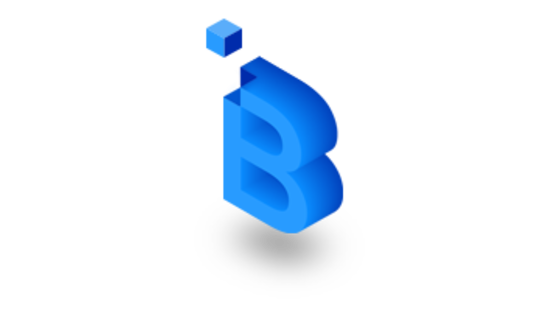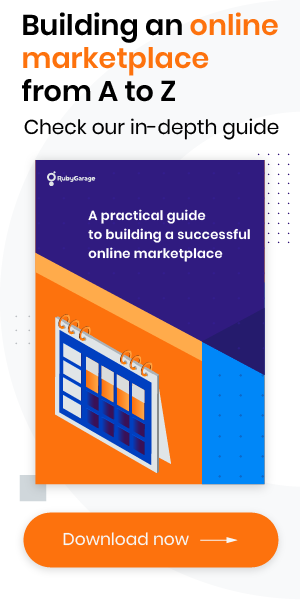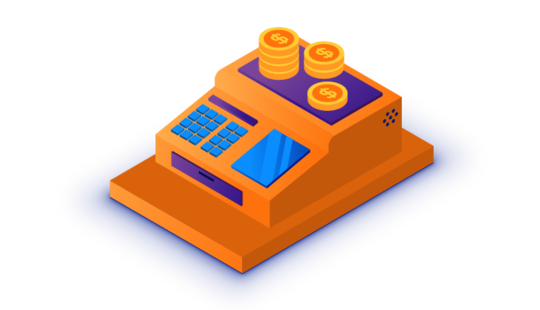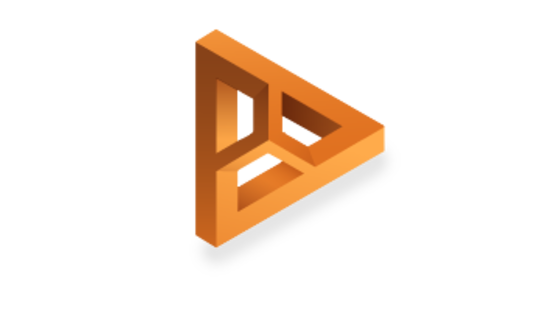-
Product Management
Software Testing
Technology Consulting
-
Multi-Vendor Marketplace
Online StoreCreate an online store with unique design and features at minimal cost using our MarketAge solutionCustom MarketplaceGet a unique, scalable, and cost-effective online marketplace with minimum time to marketTelemedicine SoftwareGet a cost-efficient, HIPAA-compliant telemedicine solution tailored to your facility's requirementsChat AppGet a customizable chat solution to connect users across multiple apps and platformsCustom Booking SystemImprove your business operations and expand to new markets with our appointment booking solutionVideo ConferencingAdjust our video conferencing solution for your business needsFor EnterpriseScale, automate, and improve business processes in your enterprise with our custom software solutionsFor StartupsTurn your startup ideas into viable, value-driven, and commercially successful software solutions -
-
- Case Studies
- Blog
Why Should You Consider Implementing Blockchain Technology in Your Marketplace?
Since 1994, with the arrival of Amazon and eBay, the way people buy and sell has completely changed.
Early marketplaces had limitations, however they opened up new opportunities for producers, sellers, and consumers. Online marketplaces shook brick-and-mortar stores, urging every store owner if not to completely shift online then at least to have a presence there.
Today, we’re witnessing a new cycle of marketplace development with the emergence of blockchain technology. Disrupting nearly every industry, the blockchain provides new opportunities for marketplaces, changing how we make transactions online and in our everyday lives.
If your business manages a marketplace, then we suggest considering how blockchain technology will impact marketplaces. We should start with an obvious question:
What’s the blockchain marketplace?
The blockchain is a platform-like technology that consists of a decentralized ledger that records, verifies, and tracks cryptocurrency transactions and contracts between parties.
Blockchain-based or decentralized marketplaces, in turn, are peer-to-peer networks that directly connect consumers and sellers without any intermediaries.
A decentralized marketplace connects three group of users: producers, sellers, and consumers.

Just like with traditional online marketplaces, with decentralized marketplaces producers supply information about their products. Sellers also offer product information and content about their goods. Consumers look for goods on the marketplace and make purchases.
Nothing revolutionary so far. But here are the key differences that the blockchain brings to marketplaces.
What are the qualitative differences between blockchain-based and traditional marketplaces?
Since a blockchain-based marketplace removes intermediaries, all transactions are traceable on a public ledger, demonstrating a high level of security and transparency.
In addition, blockchain technology involves smart contracts – digitally signed agreements made via distributed computing platforms like Ethereum. Smart contracts are stored publicly, preventing fraud.
By joining a blockchain marketplace, producers, sellers, and consumers get the opportunity to sell and buy on a platform that offers a high level of trust and transparency and that lets them interact by their own rules with no restrictions imposed by third parties.
Let's take a look at aspects of a marketplace that function differently with a blockchain model.
Marketplace Aspects |
Blockchain Marketplace |
Traditional Marketplace |
|---|---|---|
Network Model |
Decentralized. Supported by users or nodes that contribute their computing power to the network, ensuring 24/7 availability and maintenance. |
Owned and regulated by a third party. Platform users must comply with terms set by the third party . |
Payment and Fees |
Direct payment by cryptocurrency (token), which can be exchanged for Bitcoin or fiat. May offer low fees (around 0.0001 BTC ~ 1 USD) for transaction validation, or even charge no fees. |
Payment systems or credit card transactions. Charges a percentage of every transaction, which is different for each marketplace:
|
Payment Processing Time |
Payments are instant and don’t require any intermediary. |
Payments go through third-party financial services. |
Transparency |
A blockchain marketplace allows users to sell products and services transparently and get feedback. |
Traditional marketplaces sometimes lack transparency for sellers: sales algorithms, requirements, and seller metrics aren’t made available. |
|
Information Security |
Data is immutable, so it can’t be deleted or changed. Validation by network prevents fraud. |
Personal information can be hacked and stolen. |
Privacy |
Personal information isn’t required. |
Personal information is required. |
Agreements |
Digitally signed smart contracts. Contracts are unbreakable. No intermediaries required, as smart contracts are executed automatically. |
Terms of agreements can change. Regulation by a third party. |
How does the blockchain model help resolve disputes?
Due to its decentralized model, there are no intermediaries between sellers and consumers on a blockchain marketplace. So who’s handling disputes and ensuring consumer and seller protection?
Just like with traditional marketplaces, blockchain networks have agreements – only these agreements are smart contracts.
Before making a purchase, a customer and a seller agree on the terms and record those terms in a smart contract.
There are at least two ways that digital smart contracts can protect consumers and sellers: with an escrow service or with trusted third parties.
An escrow service works like this:
- After the terms are agreed, the consumer pays the price of the product.
- This money is kept in escrow until the product is delivered.
- Once the consumer receives the product, he or she confirms that everything’s okay, and if it is then the money held in escrow is paid to the seller.
- If something goes wrong, the money held in escrow is refunded to the consumer.
However, along with the consumer there’s a second party – the seller – who might consider this refund unfair or in breach of contract. For cases like this, there’s a particular solution that the majority of blockchain marketplaces are moving toward:
Resolving disputes with a trusted third party looks like this:
- When discussing terms of purchase, the consumer and seller agree on a mediator who may get involved if a dispute arises. Marketplace owners or any individual in their network can act as a mediator.
- After the smart contract is agreed and signed, the mediator receives keys to decrypt messages between the consumer and the seller.
- If a dispute arises, these trusted third party decrypts the contract and works with both parties to resolve the situation.

How the Blockchain Impacts Marketplaces
The blockchain offers a new networked business model, offering marketplaces new opportunities for user interactions, payments, and agreements.
But what’s the next step? Where does blockchain technology lead marketplaces, with its cryptocurrency transactions, smart contracts, and decentralization?
Let’s consider some pioneering blockchain marketplaces and how they’re experiencing the impact of the blockchain.
Decentralized hosting
A blockchain-based marketplace is hosted by its users and supported by their computing power. This constant maintenance ensures that a marketplace is always accessible. Besides, rethinking how data hosting is organized can lead to more security, privacy, and transparency.
Another result of removing the centralized host is the ability to avoid hosting costs altogether and set the lowest possible prices for producers, sellers, and consumers.
One example of decentralized hosting is Sia, which allows you to create storage marketplaces built on decentralized cloud technology. The technology that Sia uses ensures constant availability and is at least ten times less expensive that other cloud storage providers.
Flexible terms
Removing intermediaries eliminates the need to accept third-party terms and conditions.
Decentralized marketplaces allow each seller to specify their own terms and offer more opportunities for consumers to shop around for the best deal.
Since terms and conditions are unpoliced, producers and sellers can distribute their product details, prices, and all other content in the way that best suits their needs.
OpenBazaar is a frequently discussed platform that combines the best practices of traditional marketplaces (product search) with letting brands and sellers set their own conditions.
The ability to set flexible terms helps producers and sellers strike a balance between redundancy, retrieval speed, and cost while encouraging healthy competition between producers and sellers to provide consumers with the best prices and customer experience.
Low fees, low prices
The cost of selling products with the blockchain model is drastically lower than the cost of selling on any major traditional marketplace. Since blockchain marketplaces offer lower fees to producers and sellers, that also means lower prices for consumers.
By using digital currency, producers and sellers don't need to trust anybody with taking payments on their behalf, as payments are transacted directly between the consumer and the producer or seller.
BitBay, for instance, offers Bitcoin payment integration, low fees, and low prices for consumers.
Easy drop-shipping
Drop-shipping through a decentralized platform gives producers a toolset to drive their sales, gives sellers a mechanism to earn more, and gives customers access to a broad choice of products from around the world.
When producers don’t want to present their brands directly, promoting products through sellers is a good idea. Amazon and eBay remain the most popular sellers using the traditional marketplace model. However, blockchain technology provides new ways for sellers and consumers to interact.
First, producers don’t have to pay to place their products on the marketplace. They pay only when a product is purchased. Sellers can offer any products they wish and promote them in any way they like, getting commissions for each sale. And, finally, customers can choose the products they want at the price that’s most attractive to them.
The Harvest network is a bright example of the blockchain ecommerce model. This platform provides consumers with a rewards program where they can earn up to 60% back on every purchase. Sellers can monetize their audience, and producers can increase their sales through sellers. In other words, it’s a model where all parties win.
Secure environment
Blockchain marketplaces offer an immutable and time-stamped verification of every single transaction ever made. This approach makes transactions easily traceable and also prevents double charges, fraud, abuse, and any other type of manipulation.
Syscoin offers a marketplace solution focused on security for consumers. Marketplaces based on Syscoin ensure security through arbitrated escrow services and digital certificates for storing and transferring documents.
Product transparency
Transparency is in the blockchain’s DNA. Blockchain marketplaces encourage transparency for transactions and agreements.
In particular, such marketplaces inspire producers, and sellers to verify their businesses and prove the quality of their products and brands to increase trust.
Moreover, blockchain marketplaces offer producers and sellers digital IDs to verify their products and businesses. These unique digital IDs can be used to track products within the supply chain, know where products are, and ensure that claims aren’t duplicated or deleted.
Provenance is one example of a decentralized marketplace that enables companies to increase trust in their products and supply chains. Its approach allows producers and sellers to share in the product journey from production to promotion and purchasing, thereby helping them improve the customer experience. For instance, a producer might own vineyards and make and bottle wine, then ship that wine to a seller, who eventually sells it to a consumer on the Provenance marketplace.
Smart contracts
Smart contracts are the final piece of the puzzle in completely removing third parties and achieving a true peer-to-peer model. Smart contracts are claimed to be unbreakable and reliable, and allow parties to agree on literally anything.
What smart contracts contribute to marketplaces is a toolkit for building a new generation of platforms where retailers, sellers, and consumers can make trusted transactions.
Canya, a marketplace for services, implements smart contracts to track transactions, monthly subscriptions, and agreements between platform users.
Blockchain: The Future of Marketplaces?
Some experts say there’s no question that the blockchain has changed the game for online marketplaces. Others believe that, so far, traditional online marketplaces don't need to worry about this new technology.
However, there’s no point in denying that the blockchain is gradually disrupting many industries, retail among them. Early blockchain marketplaces illustrate that in the long run, blockchain-based marketplaces may become serious challengers to traditional platforms.
We’re contributing to the spread of blockchain technology. Follow our blog to get more details about blockchain technology and to read a case study about the blockchain marketplace project we’re working on.












